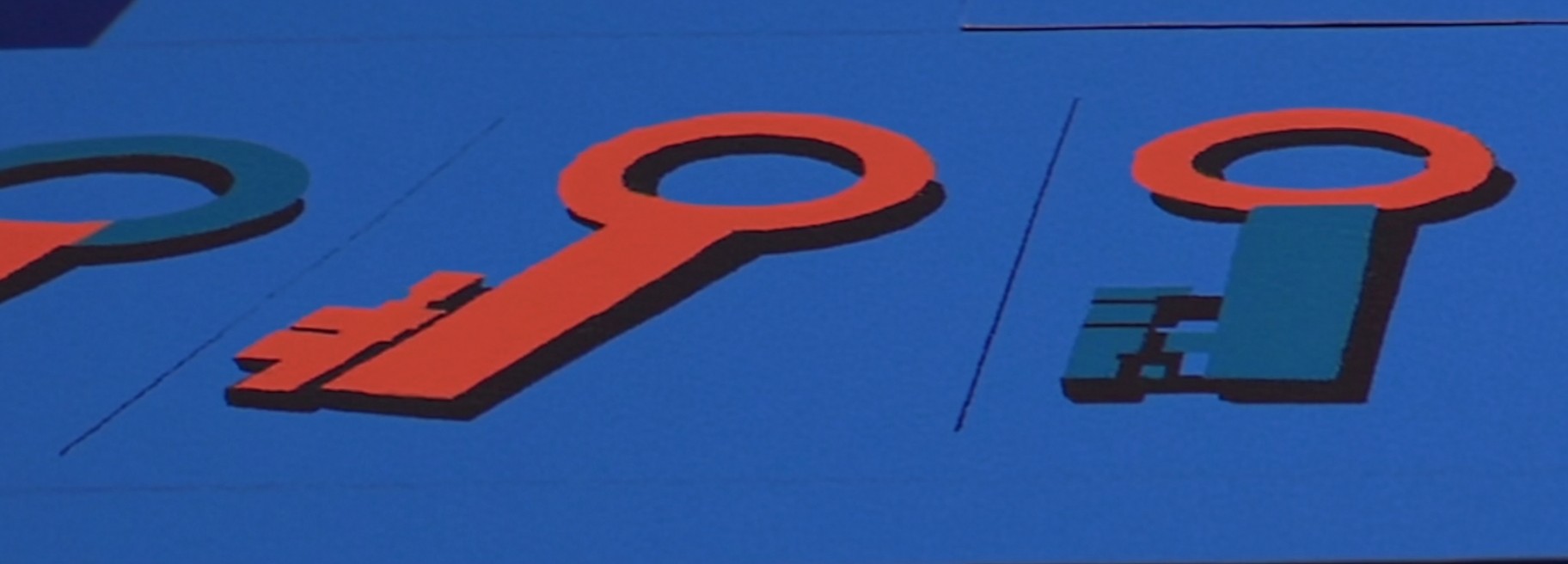Legal issues frequently crop up and an attorney’s involvement in gathering important points is almost always needed. Just one of many typical necessities in court is the getting of a bank statement from a witness. This paper can be a source of significant financial information which could verify or disprove details about the suit that were stated during the trial.
Comprehending what a lawyer has to do to obtain this bank statement that could be used as evidence might make the work faster and more legally appropriate. Besides the writ of consent, the privacy regulations play the principal role in the admissibility of the document in court. This piece goes deeper into the issue by exposing you to the fundamental principles for a smooth receipt of the required material.
Understanding the Importance of Bank Statements in Legal Cases
Bank statements serve as critical evidence in many legal cases. They provide a detailed record of a witness’s financial activities. This can corroborate or contradict testimonies. Attorneys often use them to establish patterns of behavior, trace funds, and verify or challenge claims made in court.
Bank statements offer a transparent view of transactions. Bank statements are way to know the actual financial situation, you might have had no idea of. For example, they can imply that the account owner was consistent with the payments made, he or she made large cash withdrawals, or there were transactions that appeared unfamiliar. These statements are very helpful to the judges in any legal situation that involves deception, alimony, or reimbursement.
Document authenticity is another key aspect. Courts require proof that presented evidence is genuine. Bank statements from official sources meet this criterion. One thing that is important is that they tend to add weight to the case. Moreover, they have the potential to explain the intricate financial information in a way that is more easily comprehended by juries and judges.
Acquiring bank statements involves legal procedures. In order to make statements admissible, a lawyer has to follow the rules. These can go as far as the attorney having to seek the witness’s permission, and in accordance with the privacy laws, and only be able to produce a subpoena when necessary. If not done, this may lead to the exclusion of the evidence.
When An Attorney Needs a Bank Statement from a Witness
Lawyers frequently ask culture keeping money resources of witnesses for the different cases. Such papers can obviously be very useful as proof in court hearings.
Common Scenarios
Several situations call for an attorney to request a witness’s bank statement:
- Fraud Investigations: Bank statements help trace fraudulent transactions and uncover financial misconduct.
- Alimony Disputes: Financial records verify income and expenses, influencing alimony settlements.
- Contract Disputes: Statements confirm payment histories and the flow of funds, crucial in contractual disagreements.
- Criminal Cases: Financial activities can correlate with alleged criminal behavior, providing concrete evidence.
- Asset Tracking: In asset division cases, such as divorces, statements reveal hidden assets and expenditures.
Each scenario demonstrates the bank statement’s value in delivering precise financial details relevant to the case.
Legal Grounds and Requirements
Attorneys must meet specific legal criteria to obtain a witness’s bank statement:
- Subpoena: A court order mandates the release of documents directly from the witness or bank.
- Consent: The witness gives permission in writing to the attorney for calling their statement.
- Relevance: A lawyer has to show to the judge that the document is relevant to the case in order to take its acquisition as a reasonable act.
- Privacy Laws: Being in compliance with statutory rules such as the Gramm-Leach-Bliley Act that your confidentiality is a right protected shows that privacy laws are followed.
These requirements guarantee that the process is legit, and the evidence is accepted in the lawsuit.
How Attorneys Obtain Bank Statements
Lawyers usually require individual’s bank statements to get vital financial information for their case. By using legal methods,they are able to get these papers thus protecting the privacy of the witness in the process.
Process of Subpoena
Attorneys use subpoenas to legally compel banks to provide witness bank statements. They must present a valid reason and prove the statement’s relevance to the case. Courts issue subpoenas only when the request complies with legal standards.
Sticking to the provisions of the Gramm-Leach-Bliley Act is a must to safeguard consumer privacy when their data is being collected. The act prevents the disclosure of private financial data unless authorized by the consumer and therefore the attorney’s request is proper and lawful.
Voluntary Disclosure
Some witnesses choose to provide bank statements voluntarily. During such instances, the attorneys secure written approval in order to make sure that the document is legally admissible. Often this way the process becomes simpler and the potential holdups due to subpoenas or other legal issues are greatly reduced. The witness cooperation that makes evidence collection more organized also makes the attorney’s job easier.
Attorneys are necessary for the certification of documents’ genuineness and approval of their use in a trial. This help the evidence stay trustworthy and ensure the proceedings can still proceed.
Protecting Privacy and Confidentiality
Being cautious about the privacy and confidentiality of a witness’s bank statement is of utmost importance. Regulations and set conventions are the methodologies used to ensure that the personal information is safe during legal processes.
Legal Protections
Several laws protect the confidentiality of bank statements. The Gramm-Leach-Bliley Act (GLBA) requires financial institutions to protect the data of the consumers. Lawyers are to abide by this and other pertinent laws when the need arises for the bank statements, thereby making sure the legal professionals don’t breach the privacy standard.
Order from the courts and subpoenas are also ways of legally getting hold of these documents. Lawyers have to show that the bank statement has something to do with their case to get a subpoena so that the witness’s privacy rights are not violated.
Redacting Sensitive Information
Eliminating information that is sensitive in nature is one of the ways through which confidentiality is safeguarded. Solicitors are advised to get rid of unnecessary data by way of example, account numbers, and addresses from the bank statements before they submit them as evidence in the court of law. This measure would significantly lower the likelihood of identity theft or the misuse of information.
By redacting the content you can keep only the important information visible to the people concerned and protect both the witness and the case from the contamination. Employing special redaction tools to scrub the documents ensures the data has been precisely and completely removed.
Challenges in Acquiring Bank Statements
Obtaining bank statements from witnesses often presents various challenges. These obstacles can stem from both the witness’s cooperation and legal constraints.
Witness Cooperation
Verbal evidence can be given to the bank statements with some hassles but sometimes there is a possibility that some parties choose to keep this information to themselves. Many people are worried about their privacy debacles and could also be expecting some legal problems as causes to which they decide to keep their banking details to themselves. Victims need to have faith that their financial records are secure. During the communication with the clients lawyers can use the strategy of ensuring that they provide procedures of how to use the information, their habit of keeping secrets, and presenting the rules that are governing the protection. Making the offer of legal protection and the right to identify personal details as a request may also stimulate receiving navy information.
Legal Hurdles
Legal obligations are further intricating the process of obtaining bank statements. Lawyers are prohibited to tread through such regulations as the Gramm-Leach-Bliley Act, which has the welfare of consumers at its core. Nearly all the time, if not always, to legally acquire the bank statement of a witness, lawyers should ask for a subpoena or the consent of the person. Courts require a solid base for the importance of the statement to issue the permit. In addition, the legislation of data privacy enforcement obliges not only that one complies with respectful and cautious request, but similarly the treatment and representation of records. In the absence of compliance, evidence can be ruled as irrelevant to a case and there maybe consequences for privacy infringements as well as for illegal actions.
Practical Tips for Attorneys
An important part of a barrister’s job is employing particular methods to control remarking of witness statements by the bank if the lawyer wants to get legal acceptance and make certain that the witness’s privacy is not violated.
Communicating with Witnesses
It is vital to have good communication with the witnesses to the case. Lawyers should be clear about why the bank statement is indispensable for the case and how it will be used. Because it is a fact that after providing reinsurance that the case is private, witness fears will no longer exist. To clarify, for instance, they could spell out the action of the redaction process. Lawyers might employ layman’s terms to make the whole thing very clear and simple.
Ensuring Compliance with Legal Standards
Attorneys have to be certain they are following the privacy laws and regulations that are applicable to the business they represent. They have to get to know the legal policies such as the Gramm-Leach-Bliley Act. Enquiring about the term ‘bank statements’, one must have written consent or a subpoena which was the only way possible. The legal procedure of the bank statement must include the checking of its consistency with the given case and is a must be kept from any retrogression. Documents that are only gotten through standard procedures will definitely still be credible and valid when presented in court.
A good idea would be to utilize secure processes when saving and transferring bank statements to avoid violations from gaining access. With redaction software, you can get rid of unwanted information in a more precise way.Attorneys should maintain a clear chain of custody for all financial documents to uphold their integrity throughout the legal process.
Discover the Power of BlueNotary:
Integrate your Business, Title Company, or Law Firm to Satisfy your Customers and Decrease Turnaround
Get a document Notarized/Sign-up
Join the Free Notary Training Facebook Group
Conclusion
Having the bank statements given by the eyewitness must be done in order to offer significant financial data in legal cases. The attorneys should be able to get through the privacy laws and therefore to obtain the consents or subpoenas to ensure these papers are really acceptable in court as evidence. Bank statements help to verify the financial transactions, which in turn help to support or deny the testimonies and at the same time reveal the forms of behavior.
Lawyers can elevate their chances of winning a case and at the same time, safeguard the welfare of the ones testifying by complying with the law and best practices, which are the two indispensable elements for acquiring and handling the aforementioned statements. Ensuring effective communication with the witnesses and strict privacy standards are indispensable for the acquisition and handling of these statements. Thus, the lawyers can make their evidence look authentic and trustworthy, as well as increase their chances of winning the cases, all while protecting the privacy of the witnesses by simply adhering to the legal disclosure and best practice guidelines laid down.
Frequently Asked Questions
Why are bank statements important in legal cases?
Bank statements are more often than not the most reliable and precise financial tool for conducting pattern analysis, fund tracking as well as confirming or opposing allegations and documents in the court. These files are most typically required in proceedings of scams, alimony claims, and disagreements over money.
How can attorneys legally obtain a witness’s bank statements?
Through legal methods like issuing subpoenas or acquiring written permission from the witness, lawyers can get a hold of bank statements. They have to provide the basis for their request and follow the information privacy laws such as the Gramm-Leach-Bliley Act to the latter.
What are the challenges in acquiring bank statements from witnesses?
Difficulty comes from the cooperation of witnesses, privacy concerns, and legal hindrances like getting a subpoena or the written consent. A person’s bank account may be checked by the witness, but the latter is hesitant if it comes down to confidentiality matters and consequences of legal issues.
How do privacy laws impact obtaining bank statements?
The Gramm-Leach-Bliley Act is an example of privacy laws that require banks and other financial institutions to protect the data of their clients. The attorneys have to act in line with these laws when obtaining and managing the bank papers to make sure that not only the process is legal but evidence also is let in by the court.
What steps should be taken to protect a witness’s privacy?
In the case of bank statements being presented in court, highly personal information like account numbers and addresses should be stripped off (i.e. redacted). For that purpose, lawyers need to make use of specific redacting software, and in order to ensure that no unauthorized access takes place through storage or transmission, they must be cautious about the security.
What scenarios often require a witness’s bank statements?
There are many different types of cases where the services of a private investigator will be needed. Personal situations are often the subject of concern, such as fraud investigations, alimony disputes, contract disputes, criminal. In each situation, bank statements provide precise financial details relevant to the case.
How can attorneys encourage witness cooperation in providing bank statements?
By outlining the usage of data, securing protection, and describing the legal safeguards provided, lawyers can drive cooperation. Gaining trust and comforting individuals about anytime at all situations on privacy matters can also be of help.
What is the importance of document authenticity in court?
It is a fact that in courts to content the evidence, it must be proved that it is boufied. The evidence is deemed more convincing if bank statements from the original sources are used for corroboration, and adopting some clear chains of custody for these documents help in their misplacing while going through the legal process.
What practical tips should attorneys follow when handling bank statements?
Lawyers expect their clients to effectively discuss the requirement for a bank statement with the witness, collect the required written evidence or a subpoena, satisfy privacy laws, redact privileged information and keep a chain of custody secure.







